We think that there are several things going on with your pepper plant. Two of them stem from the same cause: the cool summer weather. Peppers love it hot, hot, hot. They grow best when the night-time temperatures are well into the 70’s, but this summer in the Northeast the nights have been cool. So that’s the first issue. The cool nights also have encouraged septoria leaf spot, which causes brown spots on pepper leaves. The edges of your plant have fungal damage, probably this leaf spot.
Beyond these two conditions, consider if the following other things are an issue:
Peppers grow best in full sun – make sure a garden where you plant peppers is getting at least 6 hours of dead-on sun including the noon hour.
Peppers grow best in soil with a pH of between 6.2 and 7 – in other words, slightly acidic or close to neutral. If other things in your garden aren’t doing well it would be worthwhile to have a pH test done of the soil.
This photo shows lots of bark on or in your soil – is it mixed into the dirt or just laying on top? Is there actual dirt in this bed or just compost? Plants need more than pure compost, and they don’t grow as well with LOTS of high-carbon materials such as bark mixed into the soil. This is because those high-carbon organics (dried leaves or sawdust is the same) will take nitrogen out of the soil for decomposition and this doesn’t leave enough nitrogen for your plants. If there is lots of bark in your soil you should get some loam and mix that in, perhaps with an organic source of nitrogen such as bloodmeal or cottonseed meal. You could also add some general organic fertilizer to the soil – ask for a recommendation from your local garden center.
If in the future you have fungal issues in the veggie garden, spray with an organic fungicide such as Actinovate, Serenade, Green Cure etc – or get a recommendation from your garden center. Use any product according to directions.
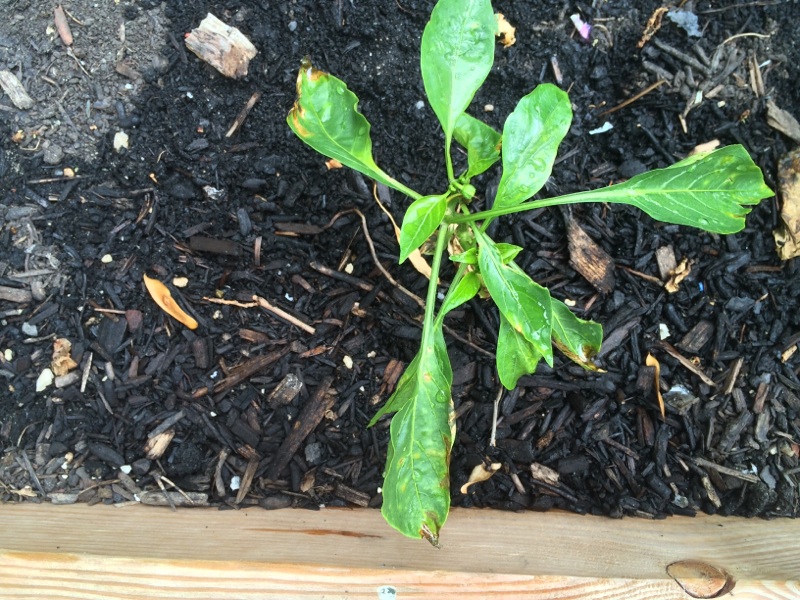
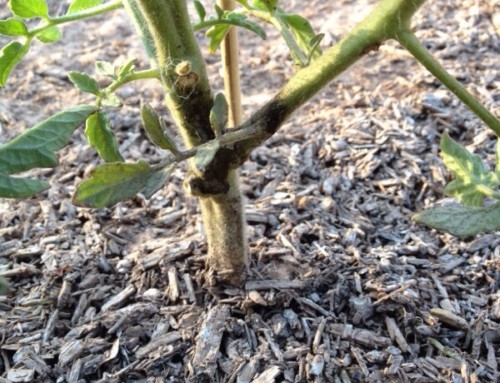
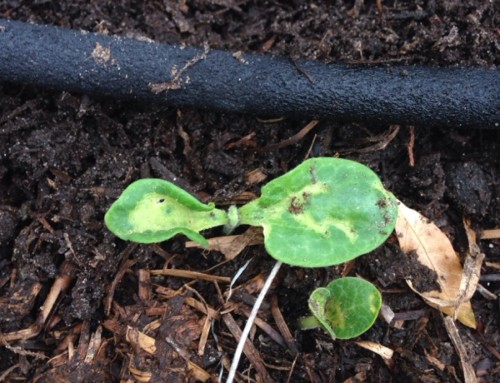
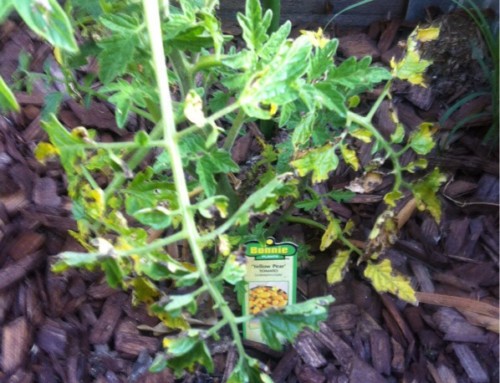
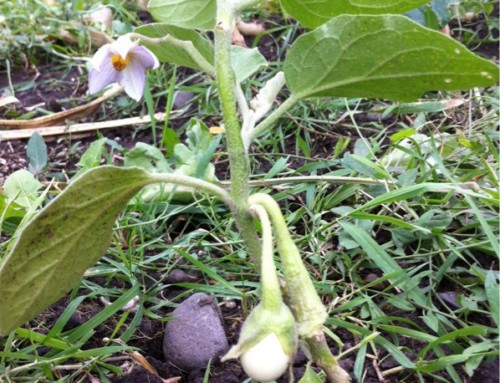
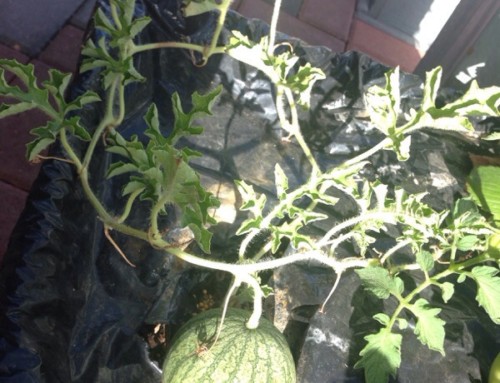
Leave A Comment